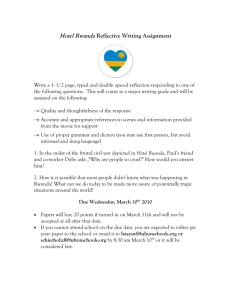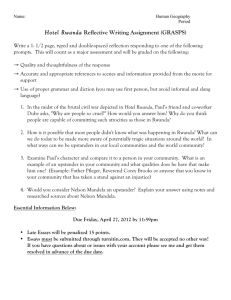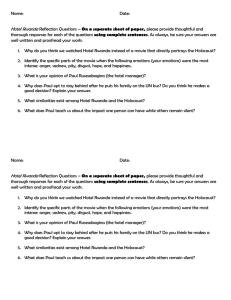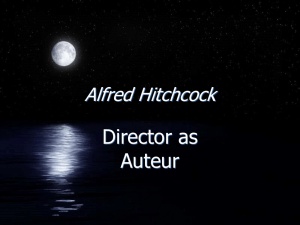Cox_anita_paper_2_outline
advertisement
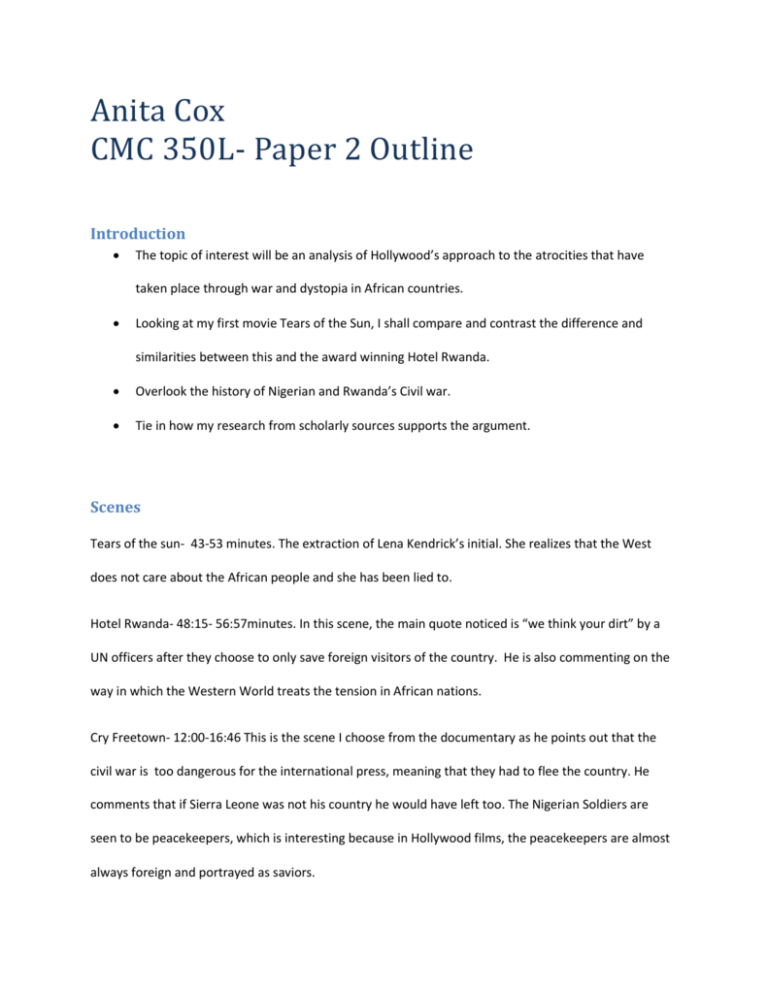
Anita Cox CMC 350L- Paper 2 Outline Introduction The topic of interest will be an analysis of Hollywood’s approach to the atrocities that have taken place through war and dystopia in African countries. Looking at my first movie Tears of the Sun, I shall compare and contrast the difference and similarities between this and the award winning Hotel Rwanda. Overlook the history of Nigerian and Rwanda’s Civil war. Tie in how my research from scholarly sources supports the argument. Scenes Tears of the sun- 43-53 minutes. The extraction of Lena Kendrick’s initial. She realizes that the West does not care about the African people and she has been lied to. Hotel Rwanda- 48:15- 56:57minutes. In this scene, the main quote noticed is “we think your dirt” by a UN officers after they choose to only save foreign visitors of the country. He is also commenting on the way in which the Western World treats the tension in African nations. Cry Freetown- 12:00-16:46 This is the scene I choose from the documentary as he points out that the civil war is too dangerous for the international press, meaning that they had to flee the country. He comments that if Sierra Leone was not his country he would have left too. The Nigerian Soldiers are seen to be peacekeepers, which is interesting because in Hollywood films, the peacekeepers are almost always foreign and portrayed as saviors. Body one Prepare a comparative analysis between Tears of the sun and Hotel Rwanda as Hollywood films. The main the way being similar approaches to the civil wars both countries have dealt with due to ethnic tension. Body two Textual Analysis of Hotel Rwanda scene that has been selected . Body Three Introduce the third film- Cry Freetown. This being a documentary, I shall discuss the different approach in comparison to the two Hollywood films. Conclusion Summary of the perceptions of Dystopia, and how they are portrayed through film. Looking into bias and how this can be created if the Director feels a certain way about the matter. Review of Literature 1.Urvin, Peter. Reading the Rwandan Genocide, International Studies Review, Vol. 3, No. 3 (Autumn, 2001), pp. 75-99” 2.Richards, Paul. African Studies Review Vol: 49 Issue: 1 ISSN: 0002-0206 Date: 2006 Pages: 119 – 123 3.UMAR, MUHAMMAD S. The Journal of African History Vol: 45 Issue: 2 ISSN: 0021-8537 Date: 07/2004 Pages: 348 - 350
